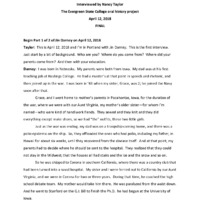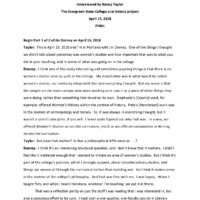Virginia Darney Oral History Interview
Item
- Identifier
- Title
- Date
- Creator
- Contributor
-
DarneyVirginia
-
Virginia Darney Oral History Interview
-
April 12, 2018
-
April 13, 2018
-
Virginia Darney
-
Nancy Taylor
Position: 1564 (3 views)

